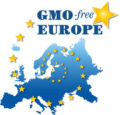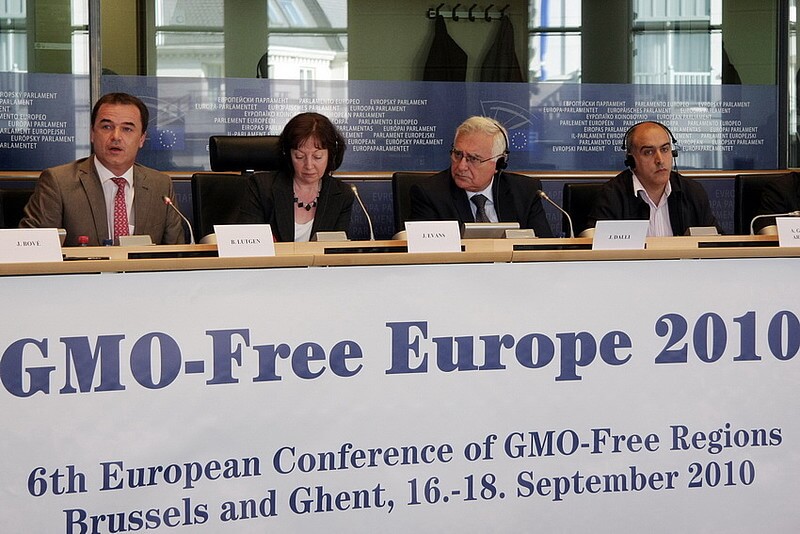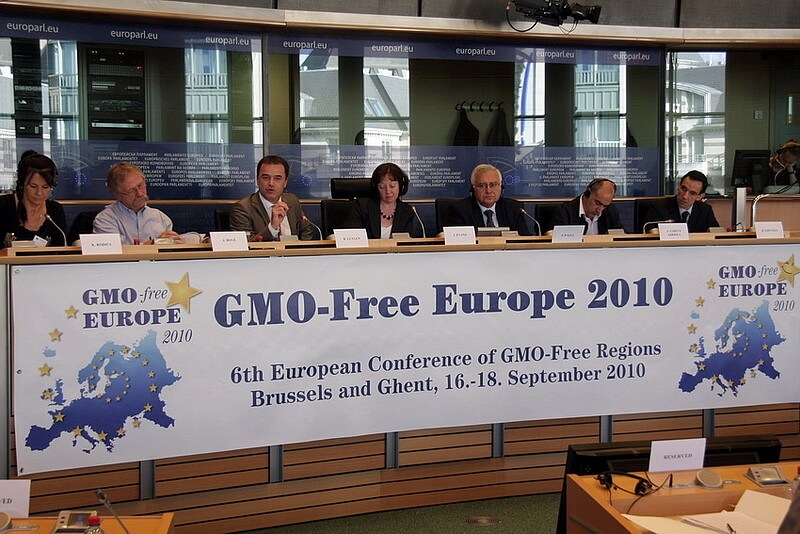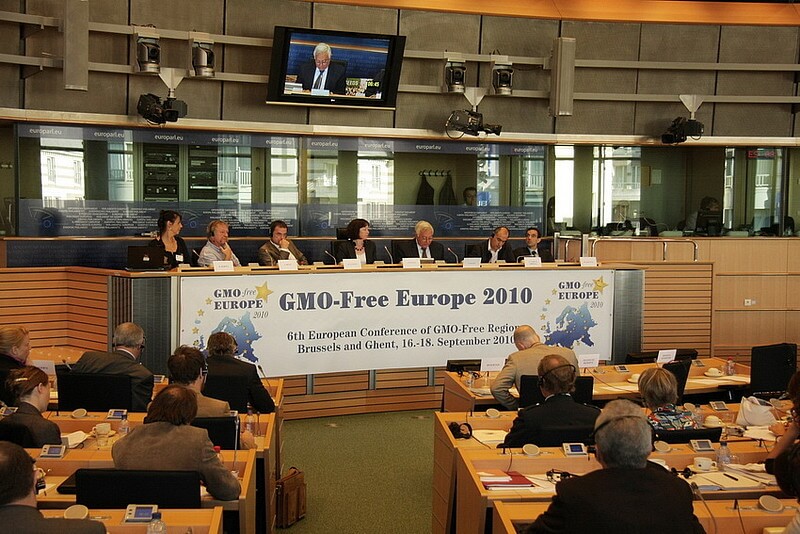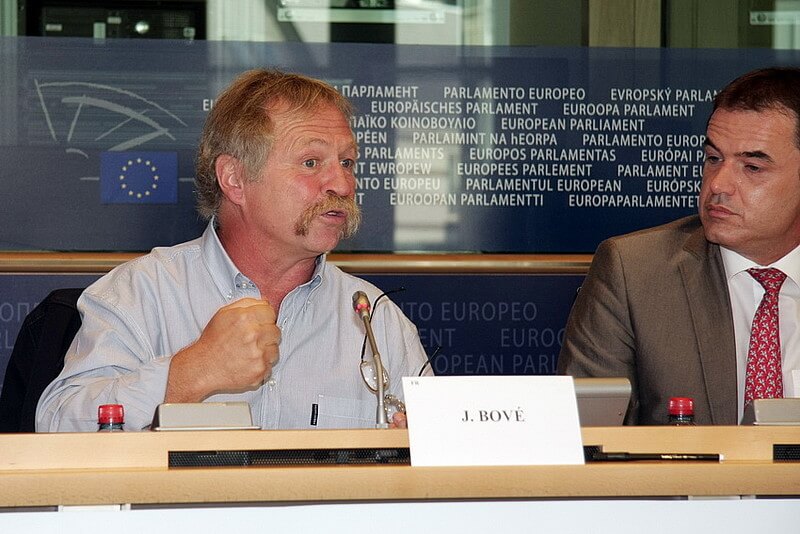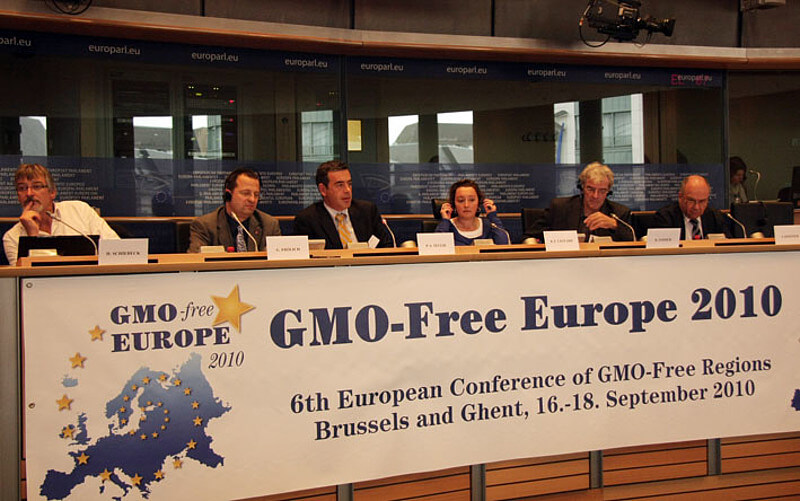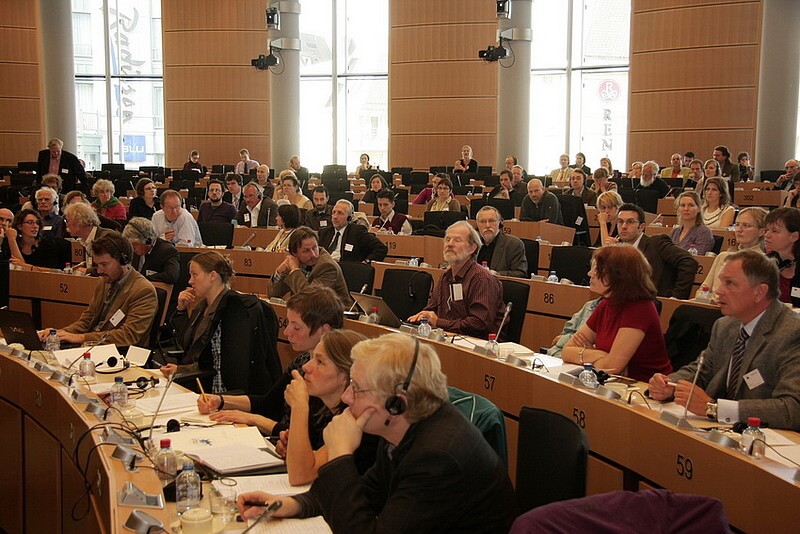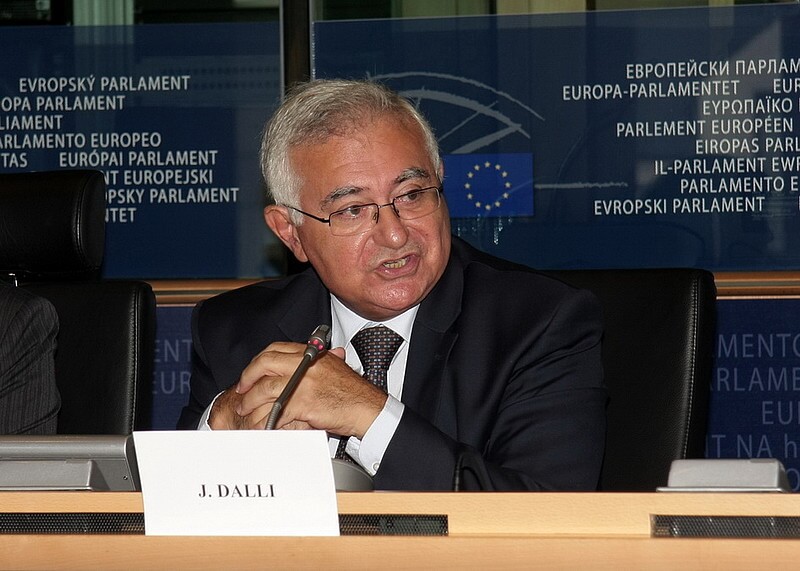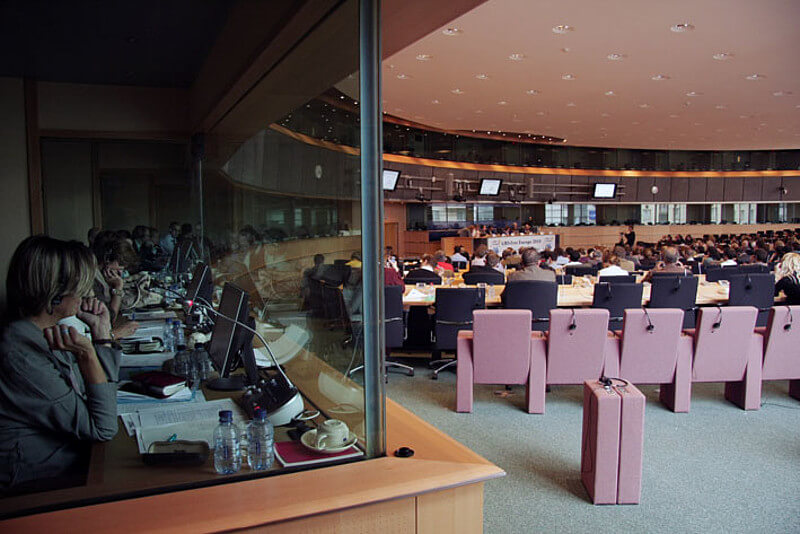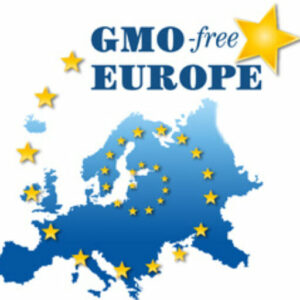Press Information
Pictures from the Conference
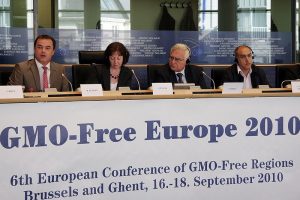
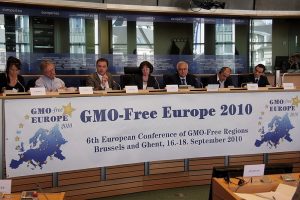
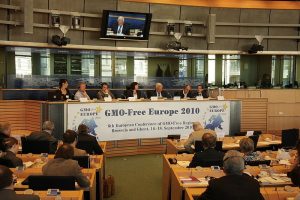
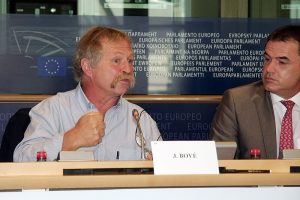
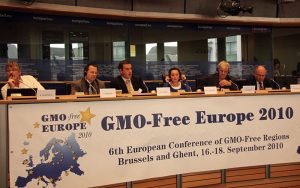
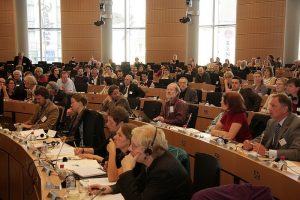
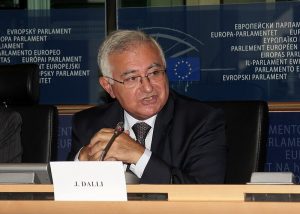
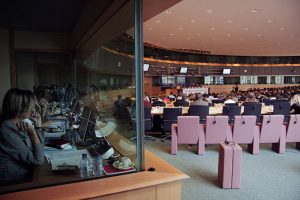
Copyright Volker Gehrmann – GMO Free Europe 2010
GMO-Free Regions Europe 2010
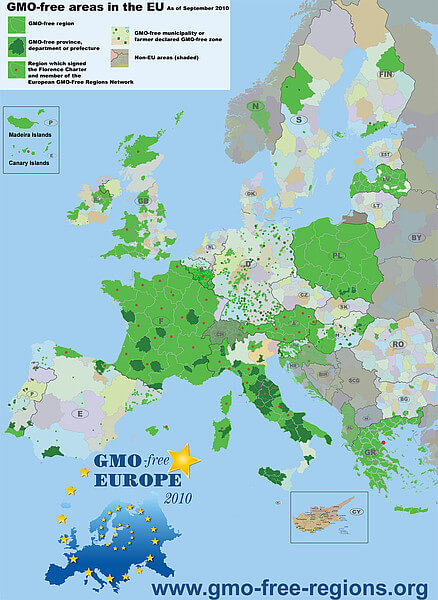
Some media coverage
- The Parliament: EU defends ‘balanced and pragmatic’ GM policy
- Reuters (16 Sept): France still opposed to EU plan on GM crop growing
- Reuters (20. Sept): EU exec to press ahead with GM crop approvals
- ENDS: Anti-GM crop conference hits out at EFSA
- Agra-Europe: Dalli promises GM feed solution
- Agra-Net: EC edging closer to solution to GM contamination
- EU-Commission: John DALLI Member of the European Commission, responsible for Health and Consumer Policy GMOs and GMO-free agriculture – Where do we stand? 6th european conference of gmo-free regions Brussels, 16th September 2010
- GMWatch: Commissioner Dalli admits EU food safety regime must change
Spanish:
French:
- Le Monde (20.9.): OGM : le Gers dépose un recours contre Bruxelles
- TF1 News: OGM : d’Artagnan contre les “technocrates européens”
- HNS: OGM : la contestation enfle en Europe
German:
- Informationsdienst Gentechnik: Dalli bekommt Gegenwind
- Transgen: John Dalli: Schon bald “technische Lösung” für Gentechnik-Spuren
Polish:
Italian:
- ANSA: OGM, UE INTERROGA STATI SU NUOVA STRATEGIA
- ANSA: Regioni: OGM – Da Commission nuova proposta mangimi
Media contacts
Press officers of the Conference organising Committee in Brussels:
- Green Group in the European Parliament: Helmut Weixler +32 475 67 13 40
- Greenpeace EU Unit: Jack Hunter +32 476 98 85 84
- Friends of the Earth EU: Samuel Fleet +32 2 893 1012
- IFOAM EU: Sevelina Todorova +32 2 280 12 23
- Conference Secretariat: Benedikt Haerlin +49 173 999 7 555
Other press officers:
- Spokesperson of Commissioner John Dalli: Frederic Vincent +32 498 98 71 66
Press Release: Commissioner Dalli faces though resistance to new GMO policy
Brussels, 16 September 2010 – Europe’s health and consumer affairs commissioner John Dalli endured a barrage of criticism from delegates at a GMO-Free Regions conference in Brussels today (Thurs).
Dalli rehearsed a Commission proposal to give member states new rights to ban GMO cultivation, but admitted to delegates that the European Food Safety Authority (EFSA) needed to be reformed. He responded to challenges from well-known farmer and vice chair of the European Parliaments’ agricultural committee José Bové, who called for “draconian” reform of EFSA.Bové summed up the feeling among delegates: “Nobody should be forcing us to consume GMOs or destroy our farming for GMOs. It’s a political choice which is why we are here today.”
Wallonian agriculture minister Benoit Lutgen called for a quality based agricultural reform: “This is one of the reasons Wallonia is a member of the network of GMO-free regions,” he explained.
Evelyn Huytebroeck, environment minister of the Region of Bruxelles announced to the conference that just today the regional government of the Capital of Europe had also taken the decision to become a GMO-Free Region.
The conference, held in the European Parliament building, brought together around 300 representatives from GMO-free regions, initiatives, farmers, environmental and consumers organizations in 37 countries.
- Press Release of the Conference organisers
- Speech of Commissioner John Dalli
- Communiqué de Pressé
- Declaration of the Minister of the Region of Bruxelles to go GMO-Free
Groundbreaking study shows Roundup link to birth defects
Groundbreaking study shows Roundup link to birth defects
International scientists confirm dangers of Roundup at GMO-Free Regions Conference in Brussels
Glyphosate, the active ingredient in the world’s best-selling weedkiller Roundup, causes malformations in frog and chicken embryos at doses far lower than those used in agricultural spraying and well below maximum residue levels in products presently approved in the European Union. This is reported in research (1) published by a group around Professor Andrés Carrasco, director of the Laboratory of Molecular Embryology at the University of Buenos Aires Medical School and member of Argentina’s National Council of Scientific and Technical Research.
is Director of the Laboratory of Molecular Embryology, University of Buenos Aires Medical School and lead researcher of the National Council of Scientific and Technical Research (CONICET), Argentina. His research in embryology has focused on the frog embryo model but has also employed other models. His basic research has delved into the relationship between retinoids and Hox genes in the morphogenesis of the anterior-posterior axis (López et al., 1992, 1995). More recently, basic research in his lab has extended to studies on Sonic Hedgehog and Notch signalling in relation to early neurogenesis and the development of the embryonic dorsal midline (Franco et al., 1999; Paganelli et al., 2001; López et al., 2003, 2005). Professor Carrasco’s applied research has employed the embryological expertise of his laboratory to assess the impacts of pesticides, primarily glyphosate-based pesticides, on embryonic development, uncovering disruptive effects that can be linked to birth defects in humand exposed to these pesticides.
Paper by Prof. Andrés Carrasco et. al: Glyphosate-Based Herbicides Produce Teratogenic Effects on Vertebrates by Impairing Retinoic Acid Signaling
Michael Antoniou, Paulo Brack, Andrés Carrasco, John Fagan, Mohamed Habib,Paulo Kageyama, Carlo Leifert, Rubens Onofre Nodari, Walter Pengue:
GM Soy – Sustainable? Responsible? Executive Summary
Speakers and Participants
- List of speakers (see also online)
- List of participants
